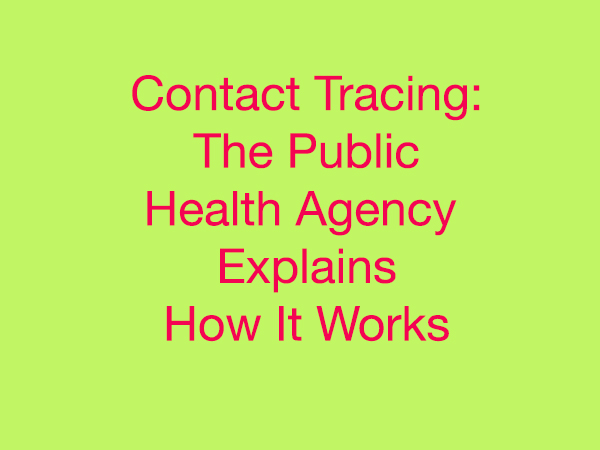Contact tracing and its role in helping limit second wave of coronavirus.
Dr Jackie Hyland, Consultant in Health Protection at the Public Health Agency comments on contact tracing.
Imagine a fire has just swept through Northern Ireland. With concentrated effort from everyone in society it has been largely put out, but we aren’t out of danger yet – small secondary fires continue to burn and if these fires aren’t attended to, they can spread just as quickly, causing even more devastation.
This analogy helps to explain the role contact tracing will now play after the first wave of coronavirus here. Contact tracing is an effective and efficient method carried out by public health to help prevent the further spread of infections such as COVID-19, and we are now aiming to target those clusters which could spark new outbreaks using this approach.

It works by identifying and speaking to a confirmed case and asking them who they have been in contact with. Individual contacts are identified as being high risk, low risk or no risk. To be considered high risk you will have to have been in close contact of a confirmed case and spent more than 15 minutes with them without any personal protection. This means that those who have casually passed by someone on the street will not be considered high risk. Contacts may also be people who have had the infection but were unaware of this because their symptoms were mild and they may have unwittingly spread infection.
The case and contacts will be given advice on what to do about managing symptoms and the need to self-isolate to prevent any wider spread of the virus. This advice is based on the information available on the PHA website and covered widely in the media around social distancing, handwashing and cleaning in the home to help protect people who are at risk and support people on how best to look after those in their care.
The purpose of this is to help protect these individuals, their families and their carers, and to help prevent further spread of infection.
At the beginning of the COVID-19 pandemic, public health carried out contact tracing on emerging cases. However, because people were widely mixing in shops, on public transport and in social settings, it was impossible to contact everyone who might have picked up the infection. Therefore on the basis that anyone could have the infection and be spreading it, everyone had to go into lockdown.
As we all know, life has changed completely in recent weeks, with shops, schools and workplaces closing, and everyone being asked to socially distance and limit their travel. This has been successful in breaking the chain of infection and now the task is to keep on top of any clusters of infection as these arise.
Thankfully these strategies and the public’s willingness to follow public health advice have helped prevent large numbers of clusters of COVID-19 here, but we would urge everyone to continue to stay at home, maintain good hand hygiene and practise social distancing to help in the battle against this pandemic.
At this point in the local management of this global pandemic, our efforts now need to look at trying to prevent spread in areas where we know there is an increased likelihood of clusters – primarily settings where large number of people share accommodation or are at increased risk of complications.
The pilot programme which we have put in place will focus on priority groups within the population where clusters of infection may be presenting, and we will be working with a number of care homes on this. Contact tracing will be at the centre of the programme.
This work and the potential scale and detail involved requires new ways of working, so there is a lot still that we need to learn about the process.
We have teamed up with colleagues in the university sector, the Health and Social Care Trusts, and Environmental Health to put in place all the necessary logistics, and our thanks go to all those who have offered and provided this assistance.
The processes being tested in this pilot programme will be crucial in helping to shape and implement future contact tracing activity, so we are using it to learn how we can make it as effective as possible before scaling up further.
It’s still important that we remind people of the part they can play in preventing the spread of coronavirus – adhere to the social distancing guidelines and make sure that you wash your hands regularly. If you do become unwell, telephone your GP –do not attend in person at a medical facility unless advised by a healthcare professional.
For further information on COVID-19 (coronavirus) please visit: www.pha.site/coronavirus


























